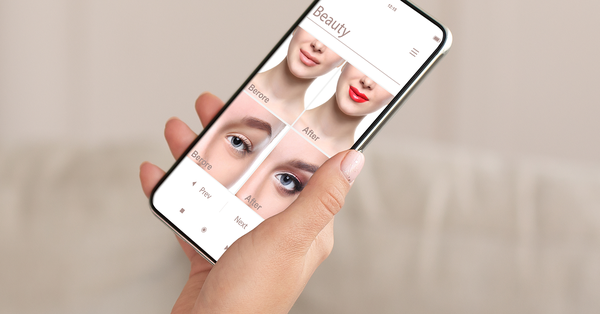Problematic ideals of beautyBeauty filter: I want to look like my selfie!
A large proportion of young people spend several hours a day on social media. There they are confronted with supposedly perfect bodies and faces. Platforms like Instagram invite them to compare the appearance of others with their own appearance every second. How true to reality photos in particular are is not always apparent at first glance. How others present themselves, however, has an influence on how users ultimately want to present themselves. Beauty filters can be one way of getting closer to the ideals of beauty conveyed online.
Young people under pressure on social media
Selfies are quickly taken with a smartphone and can be edited with little effort. Changing one's appearance with the help of filters on Instagram, Snapchat or TikTok has become part of everyday life for many users. However, beauty filters in particular could lead to the actual appearance no longer being perceived as beautiful. The use of filters creates an "optimized self" that no longer corresponds to the real self. Looking in the mirror then appears as a disappointment. Self-esteem suffers because one no longer finds oneself beautiful without filters.
Tips on how to use beauty filters
- Reflecting on your own filter use
There is nothing fundamentally wrong with photo filters. It's more a matter of reflecting on how you use them. This applies to your own photos, but also to reflecting on the filtered photos of other users. - Use humorous filters
In addition to beauty filters, there are also fun filters for a more humorous appearance. Such filters can promote a creative and humorous approach to one's own appearance. Note: Some of these filters change the appearance in the same way as beauty filters do. - Even without filters
Posting photos without filters every now and then can boost your self-confidence. Often users are afraid that unfiltered photos will receive less approval in the form of likes and positive comments. It can help to look at profiles where users deliberately show themselves without filters under the hashtags #nofilter, #nomakeup or #facepositivity, among others. - Questioning beauty ideals
Beauty filters on social media reinforce current beauty ideals. In real life, however, hardly anyone looks like the filtered image. It is important to question beauty ideals and to develop an awareness of where technical means are being used to help. - Deactivate the Like function
It is particularly important for young people to receive feedback about themselves. However, the need for likes and positive comments in social media puts adolescents under a lot of pressure. To counteract the pressure, it helps to turn off the Like function. This is now possible on Instagram.

